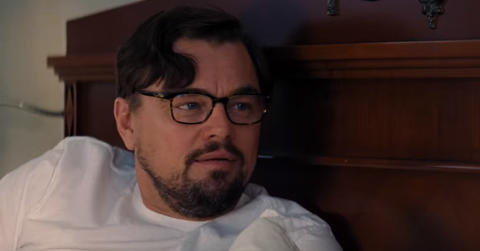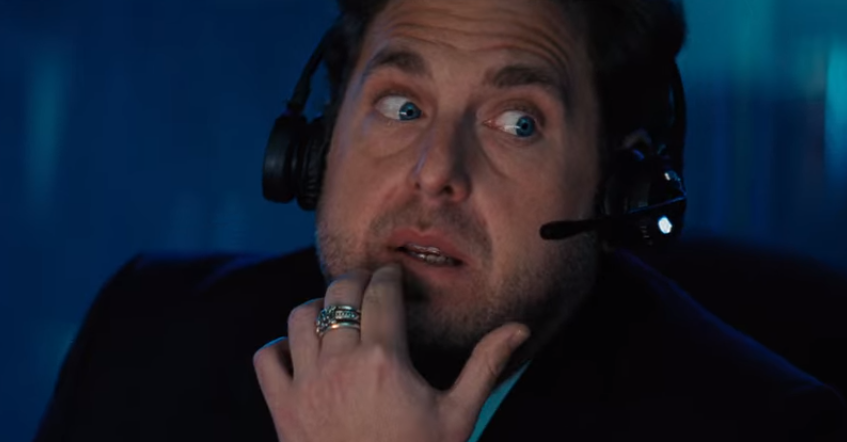‘Don’t Look Up’ Is Basically About How Collectively Stupid Society Is
Published Dec. 27 2021, 1:11 a.m. ET

You can never really underestimate a human being's capacity for stupidity and blatant willingness to completely ignore evidence. Adam McKay's latest Netflix feature, Don't Look Up, starring Leonardo DiCaprio, Meryl Streep, Jennifer Lawrence, Timothee Chalamet, Cate Blanchett, and Tyler Perry is basically about this very real human phenomenon. And there are a lot of folks who think it might also be about COVID.
Is 'Don't Look Up' about COVID?
In terms of the film's plot, no. Don't Look Up is about a team of scientists who have discovered that a huge comet is on a collision course with planet Earth and all of the trouble these folks go through to warn the world, though they have hard data acquired through lifetimes of research to back their claims up. When they attempt to alert humanity of the problem, they're met with mockery and mobilization of different political leaders and parties who use the kerfuffle surrounding the event to further their own agendas.
In the movie, Jennifer Lawrence plays astronomer Kate Dibiasky, who discovers a massive comet while working with Dr. Randall Mindy. At first, they're stoked to make such a glorious scientific find, but then they realize that the comet is probably going to hit the planet that we're living on (Earth, in case you missed that day in school) and kill us all.

Ultimately, they're met with ridicule after outing this discovery, and even the fictional U.S. president in the movie, Orlean (Meryl Streep) wants to wait the situation out, as she has a scandal she's trying to get under wraps.
Much of the discussion surrounding Don't Look Up suggests that the film is ultimately about the frustration the scientific community expresses toward people who refuse to look at factual data.
Yahoo! News reports Leonardo DiCaprio as saying, "I was just thankful to play a character who is solely based on so many of the people that I've met from the scientific community, and in particular climate scientists, who've been trying to communicate the urgency of this issue and feeling like they're subjected to the last page on the newspaper."

He continued, "I also love the way he was just incredibly truthful about how we're so immensely distracted from the truth nowadays and then, of course, COVID hit and there was a whole new scientific argument going on there, and it's just such an important film to be a part of at this particular time."
So yes, one could say that the film is, in a way, a metaphor for the media narratives surrounding the COVID-19 pandemic and how folks in general seem to eschew evidence and data in favor of picking a side that makes them feel special or like they're part of a winning team.
But human beings not acting on evidence is nothing new. How many of us judge friends who stay in relationships with people they know don't truly make them happy? Or defer their dreams and stay in careers or settlement jobs because they've convinced themselves they're unable to go after what they really want?
Leonardo continued in the same interview, "We worked a lot together on trying to understand the frustration of the scientific community and how one would be in a situation like that, of ultimate frustration, realizing the world is falling apart, and how do you take off this sort of professional jacket to cut straight to the chase about the truth of this issue."
Perhaps that's why reception to the film has been lukewarm. Or maybe, humorously trying to tackle the idea of inactivity on our species' part in creating a better world for ourselves has left reviewers bifurcated: Don't Look Up scored a 56 percent on Rotten Tomatoes with critics scores; however, audiences rank the film at a more favorable 77 percent.
Don't Look Up is streaming on Netflix.